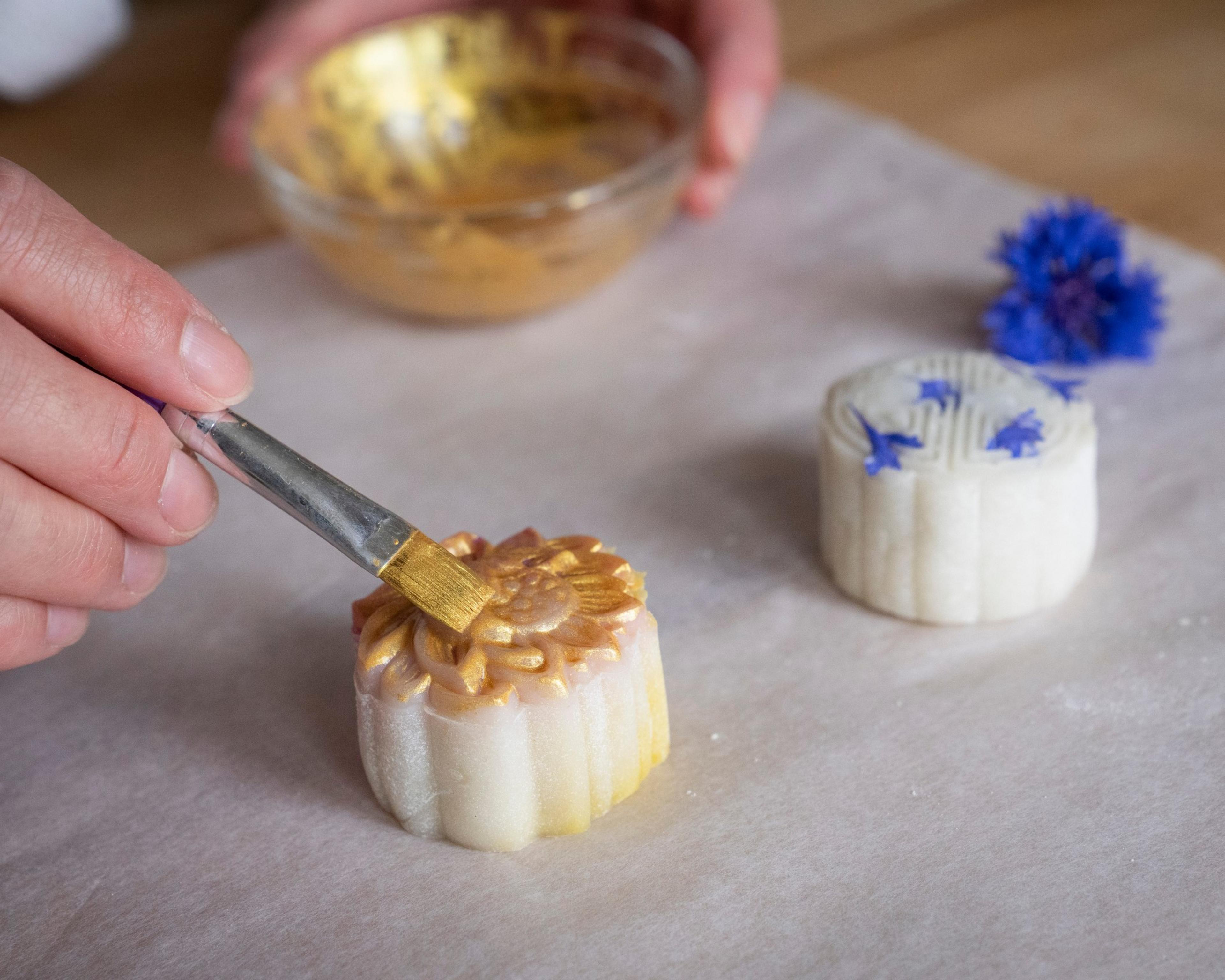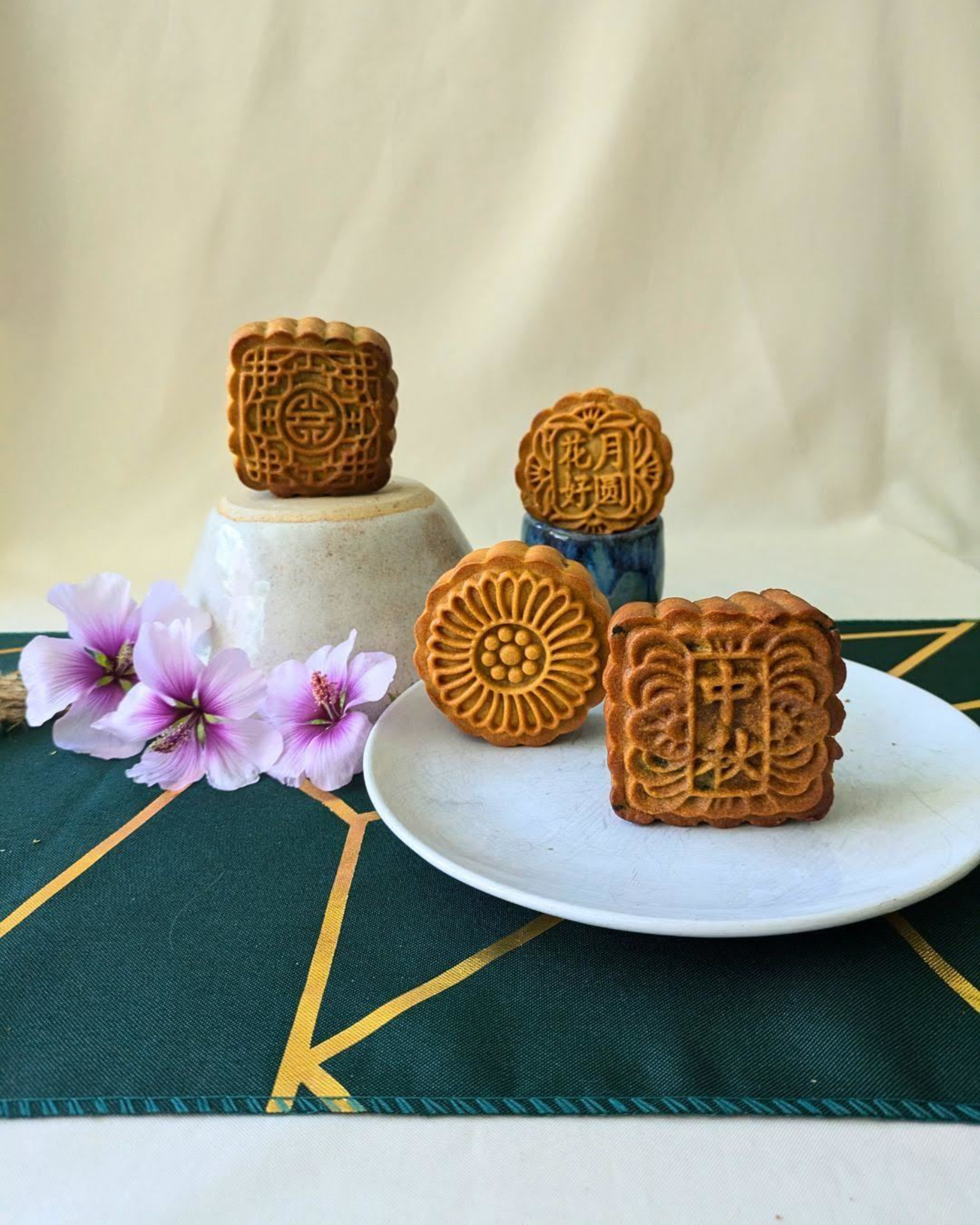Growing up in Piedmont, pastry chef Jessica Fu wasn’t a big fan of mooncakes, the pretty treats traditionally enjoyed for the Mid-Autumn Festival (opens in new tab).
Her parents got theirs from Sheng Kee, the popular Taiwanese bakery chain, which remains the mooncake go-to for many Bay Area families. They were classically Cantonese: filled with lotus seed paste and salted egg yolk, stamped with a lotus-flower pattern, washed with egg, and baked until golden.
They were also a little too big, a little too dense. “I decided I wanted to make mooncakes that I actually want to eat — ones that reflect the seasons in California,” Fu says.
Despite the fact that they are laborious to create, a handful of local pastry chefs are rethinking the mooncake. Though people celebrate the Mid-Autumn Festival all month — drinking tea, lighting lanterns, communing with family and friends, and, yes, gazing at the moon — the official day is today, the 15th day of the eighth month of the Chinese Lunar calendar, which coincides with a full moon.

Fu, who has worked everywhere from State Bird Provisions to Stonemill Matcha, has been busy getting together her mooncake menu. She’s offering two styles: classic baked ones, made smaller and more delicate and filled with chestnuts sweetened with dates and a hint of cinnamon or pineapple and peach, as well as a more modern style known as “snow skin” mooncakes, which are wrapped with rolled-out mochi, filled, and then pressed into molds.
Because the latter versions are not baked, the pleasingly chewy-squishy style allows for various fresh flavors. Fu is offering jasmine tea with yuzu custard and a soba cha (buckwheat tea) custard with hazelnut praline, plus one with marigold, “which plays well with strawberry,” she says. She dusts some with a sheen of gold, others with a few tiny flower petals.

Annie Wang, the woman behind Oakland-based Little Moon Bakehouse (opens in new tab) (recently rebranded from Annie’s T Cakes) is making baked mooncakes — with a mission. Wang’s pretty, tasty pastries are vegan “and always will be” because she previously worked in the environmental and food tech sector. Her interest in sustainable food systems led her to ditch eggs, meat, and dairy, all of which can be found in traditional mooncakes.
Though she has a stand at the Ferry Plaza Farmers Market on Saturdays, Wang has also started to distribute nationally. If you preorder, you can get a nicely designed box of four flavors, including mung bean and pineapple or hazelnuts, indulgent fudge brownie and matcha chocolate, and a very delicious black sesame and coconut. Wang’s mooncakes are more sizable and heftier than Fu’s, but a little slice alternated with a sip of tea is pure pleasure.

Clearly, even Sheng Kee realized it needs to up its mooncake game. This season, the bakery partnered with Bake Sum (opens in new tab), the Asian bakery from Bay Area native Joyce Tang. The special-edition box (opens in new tab) includes mooncakes filled with coconut mango; pandan; pineapple-li hing (salted plum powder); and passion fruit, orange, and guava, or POG. (Watch out, Little Moon — all but the pineapple-li hing are vegan.)
Food publicist Deborah Kwan, a San Francisco native, grew up celebrating the Mid-Autumn Festival with her parents. “We’d get them at Eastern Bakery (opens in new tab),” she says of the famed Chinatown bakery. “Now a lot of my family buys them at Costco. The aisles are filled with mooncakes!”
Last year, Kwan bought Fu’s to share with her parents. “They liked them,” she says with a laugh, “but then asked how much they cost and I got scolded for spending so much money.”
